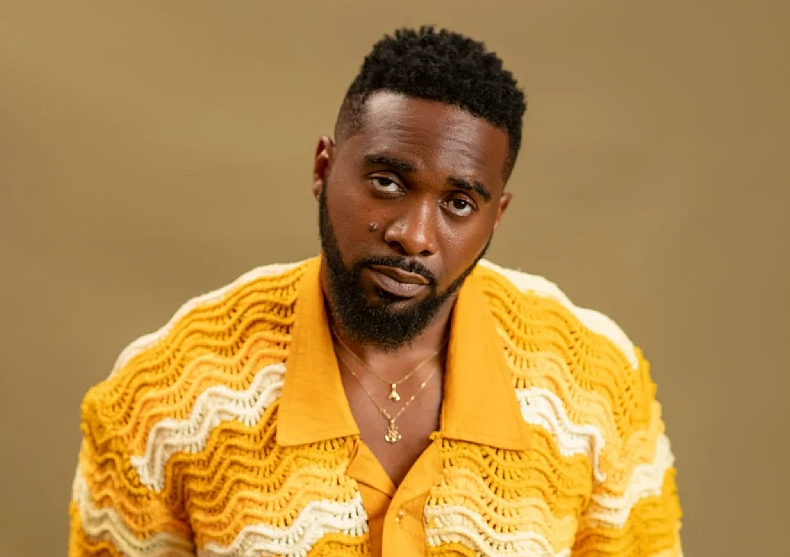Uzor Arukwe, a prominent figure in the Nigerian film industry, recently addressed persistent rumors about his sexual orientation during an appearance on the talk show “Unfiltered and Extra Spicy.” The speculation surrounding Arukwe’s sexuality had gained considerable traction, prompting him to finally break his silence on the matter. He directly confronted the rumors, expressing surprise at the accusations while simultaneously noting a belief that such rumors might indicate a rise in popularity. This seemingly paradoxical reaction revealed a complex interplay of emotions, from initial shock to a sense of validation based on a perceived correlation between controversy and fame. Arukwe’s response provided a glimpse into the pressures and expectations placed upon public figures, particularly within the context of a society where discussions about sexuality often remain sensitive and nuanced.
Arukwe’s statement went beyond a simple denial of the rumors. He elaborated on his relationships with individuals within the LGBTQ+ community, emphasizing his genuine affection and respect for his gay friends. This aspect of his response highlighted the importance of separating personal relationships from assumptions about one’s own identity. By explicitly acknowledging his friendships with gay individuals, Arukwe implicitly challenged the notion that associating with members of a particular community automatically implies shared identity or experiences. This distinction is crucial in dismantling stereotypes and fostering an environment of inclusivity and acceptance. He underscored that his friendship with gay individuals should not be misconstrued as evidence or confirmation of his own sexual orientation.
The actor’s response also touched upon the broader societal perception of homosexuality and the potential impact on individuals who choose to openly embrace their sexual identity. Arukwe’s hypothetical declaration that he “would be one of the hottest around” if he were gay, while seemingly lighthearted, can be interpreted as a reflection on the challenges and potential prejudices faced by individuals who openly identify as LGBTQ+ in certain social contexts. His statement suggests that coming out can be both a personal and public act, carrying with it both potential risks and rewards. This comment, though perhaps unintentionally, highlights the complexities of navigating public perceptions and personal identity within a cultural landscape that may not always be fully accepting.
Furthermore, Arukwe’s response subtly addressed the prevailing cultural attitudes towards homosexuality in Nigeria. His invocation of God as the ultimate judge underscores the deeply religious and sometimes conservative societal backdrop against which these rumors are circulating. By deferring to a higher power, he implicitly acknowledges the sensitivities surrounding discussions about sexuality within a religious context. This deference to divine judgment might also be interpreted as a strategic maneuver to navigate a potentially controversial topic while respecting the beliefs of a predominantly religious audience. It reflects the delicate balancing act public figures often have to perform when addressing sensitive issues within a complex social environment.
A deeper analysis of Arukwe’s response reveals the multifaceted challenges presented by rumors and speculation, particularly in the digital age where information spreads rapidly and often uncontrollably. The actor’s willingness to address the rumors head-on demonstrates a proactive approach to managing public perception and controlling the narrative surrounding his personal life. His response can be seen as an attempt to reclaim agency in a situation where false narratives can easily gain traction. By directly confronting the rumors and providing context, he aims to mitigate the potential damage to his reputation and personal relationships. This illustrates the importance of managing one’s public image in an era of ubiquitous social media and online commentary.
In conclusion, Uzor Arukwe’s response to the rumors about his sexual orientation offers a glimpse into the challenges faced by public figures navigating sensitive personal issues in a complex social and cultural landscape. His statement provides a valuable opportunity to examine the intersection of celebrity, identity, and public perception. It highlights the delicate balance between personal privacy and the demands of public life, while simultaneously touching upon the broader societal attitudes toward sexuality. By addressing the rumors directly, expressing support for his friends within the LGBTQ+ community, and invoking religious considerations, Arukwe’s response serves as a microcosm of the ongoing dialogue surrounding sexuality and acceptance in contemporary society. His experience underscores the need for empathy, understanding, and responsible discourse in addressing sensitive personal matters within the public sphere.














